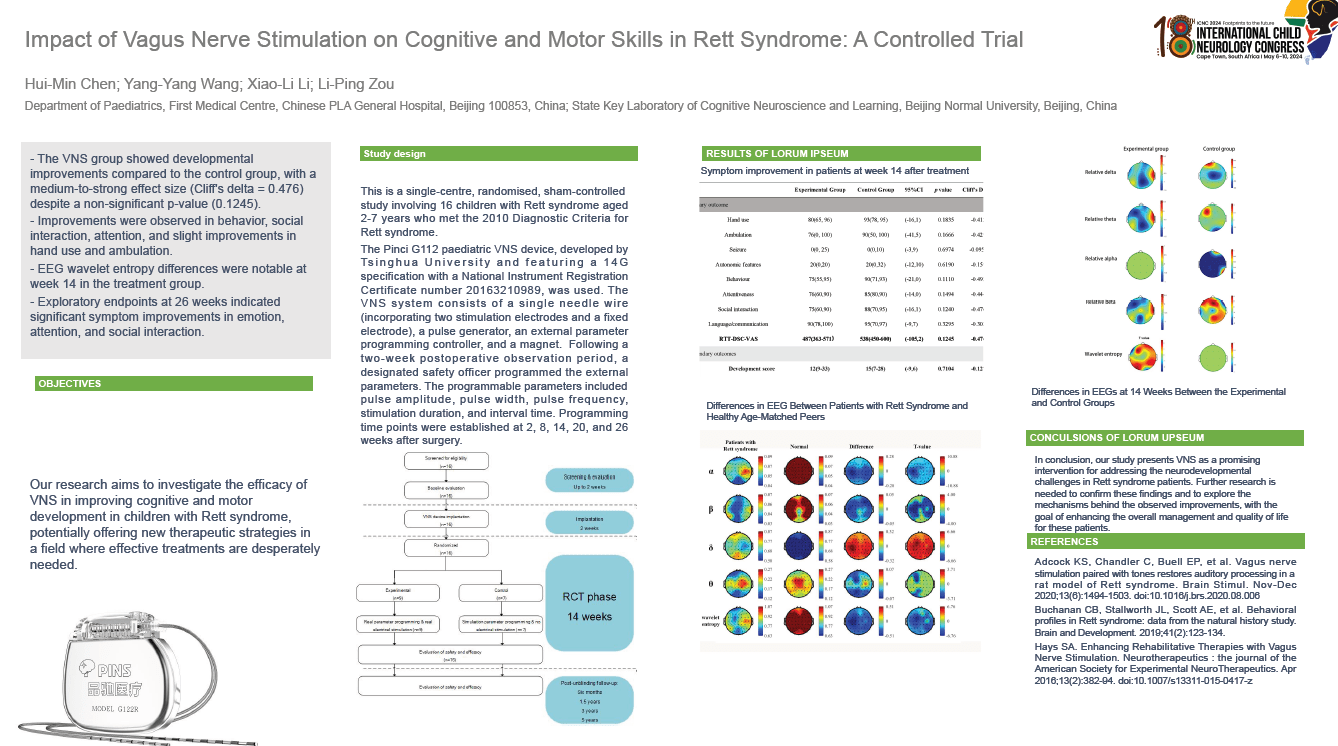Vagus Nerve Stimulation As A Potential Intervention For Cognitive And Motor Development In Rett Patients
Background: Rett Syndrome (RTT) is a severe neurodevelopmental disorder with limited treatment options. Vagus Nerve Stimulation (VNS) has been proposed as a potential therapeutic approach, but its efficacy in RTT patients remains uncertain. Methods: This study was a randomized, sham-controlled trial involving 16 children with RTT, conducted from August 1, 2017, to March 30, 2019. Participants were implanted with VNS devices and underwent a 14-week blinded phase, followed by a 26-week open-label phase. The primary outcome was measured using the RTT-DSC-VAS scale, while secondary outcomes were assessed using the Gesell developmental scale, EEG, and wavelet entropy analysis
Results: The study found significant developmental progress in the experimental group compared to the control group, with a medium to strong effect size (Cliff's Delta = 0.4844) despite a p-value of 0.1211. The Gesell scale indicated improvements in adaptive behavior, language, and personal-social skills. EEG wavelet entropy showed notable differences at the 14-week mark. Caregivers reported improvements in emotional, attentional, and social skills at the 26-week endpoint. The study recorded six adverse events, including one serious case of vocal cord paralysis. Conclusion: VNS demonstrates potential as a therapeutic strategy for neurodevelopmental symptoms in children with RTT. However, further research is needed to fully understand its efficacy and safety profile.
Yang-Yang Wang
Chinese PLA General Hospital
China
Hui-Min Chen
Chinese PLA General Hospital
China
Li-Ping Zou
Chinese PLA General Hospital
China

Yang-Yang Wang
Chinese PLA General Hospital
China